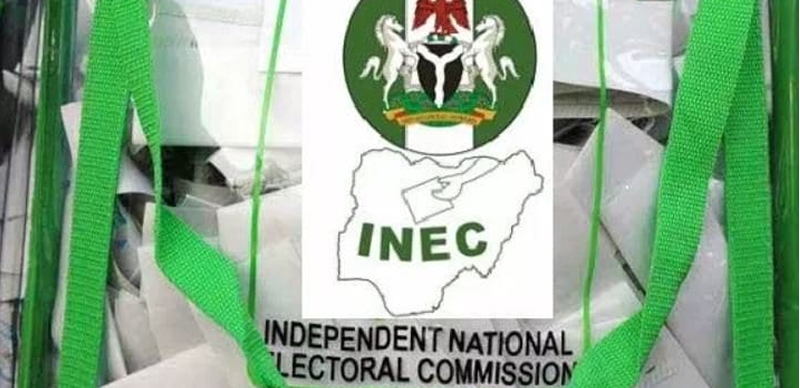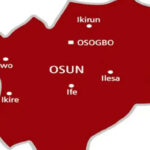
Recently, I read a news article wherein the chairman of the Independent National Electoral Commission, Professor Mahmood Yakubu, promised Nigerians credible elections in February 2023. According to the report, the INEC boss, who spoke by proxy at a breakfast seminar organised by the Christian Men’s Fellowship of the St. James Anglican Church Asokoro, Abuja, advised Nigerians to vote for candidates based on competence, ideas and track records. Furthermore, he asserted that the introduction of the Bimodal Voter Accreditation System (BVAS) by INEC ‘…has finally murdered rigging in Nigeria.’ That article struck the right chord in me because it evokes hope for a better Nigeria.
The truth is that over the years, elections have not inspired much confidence in Nigerians because of the activities of electoral umpires. From the pre-independence Electoral Commission of Nigeria (ECN) through the Second Republic’s Federal Electoral Commission to the National Electoral Commission (NEC), and National Electoral Commission of Nigeria (NECON) of the military era, the activities of electoral commissions have always left much to be desired. In 1996, my final year in the university, I had a first-hand experience of how corrupt our electoral system really is. I was convinced by a friend to join the electoral exercise organised then to choose state and national delegates for the Sani Abacha organised transition. Since it aligned with my desire to serve humanity, I contested in Maryland, Enugu where I lived in an off-campus residence. Being a popular strong-arm leader among the students, my candidacy was an easy sale. I campaigned mostly among students who lived in ‘their numbers’ amid the locals.
On Election Day, 50 of us contested for ten positions. I had the longest queue behind me but the electoral officer sought to reduce it with some ‘abracadabra’, counting like 58…59…30.., 31…etc. On a few occasions, he was challenged and made to recount. Eventually, he recorded 90 for me. Strangely, after collation, my name was not announced amongst the winners even though I had the highest number. Instantly, ‘my supporters’ went on a rampage and took the community leader (who was influencing the electoral officers) hostage. His palace was destroyed and his traditional chair burnt. Panicked, he made the officers to reverse the situation. So, I proceeded to the state level where I was eventually manipulated. This nasty experience made me to abandon politics till today. Like me, many ‘good intentioned men’ have been excluded from our politics because of such experiences, albeit to the disadvantage of the nation. This untidy process took place under Chief Summer Dagogo-Jack, Head of NECON. Today, history’s perception of Dagogo-Jack is largely influenced by the outcome of that electoral regime.
Naturally, the activities of every organisation are influenced by the integrity of its leader. That is why Yakubu’s promise is music to the ears. This is particularly so because the conducts of many electoral czars have not inspired confidence in the masses. Professor Humphrey Nwosu’s NEC came close to giving Nigerians the ideal elections in 1993 when he organised what has been adjudged as the freest/fairest elections in the nation’s history. However, the cancellation of that election by the Babangida regime cast a dark patch on his efforts. The failure of subsequent electoral bodies to match his work has left the people almost despondent. Even more disheartening is the fact that every electoral regime promises Nigerians credible elections, only to give them the short end of the stick at the end. Some electoral officials have attributed these failures to the inability of the system to empower the electoral bodies. Reacting to criticisms over his inability to organise credible elections during the 1965 Western Region elections, the Chairman of the then Federal Electoral Commission (FEC), Mr Eyo Esau, retorted that he could not ‘perform the miracles’ expected of him due to the limited and conflicting scope of the FEC’s powers. This lacuna was worsened by the stop-start military interventions in Nigerian politics. However, the return to democracy in 1999 and its uninterrupted run for over two decades have helped to modify the Electoral Act to give INEC freedom in such areas as funding, electronic voting/transmission, authority to review decisions of returning officers etc. These concessions have provided the needed chutzpah Esau yearned for nearly six decades ago. Simply put, Yakubu has the best chance of changing this ugly narrative because the signing of the Electoral Act, 2022 makes today’s INEC the most powerful and independent electoral body in Nigeria’s history.
In a lot of ways, Yakubu’s situation is reminiscent of the story of Achilles, the Trojan War hero and central character of Homer’s Iliad. His destiny, according to prophecy, was to be the tragic hero of the Trojan War. During the course of the war, he had a disagreement with the Greek King, Agamemnon, and abandoned the war. All entreaties to get him back to the war front failed. But when the corpses of several Greek soldiers, including his warrior friend, Patroclus, was brought back from the war front, his patriotic blood boiled and he cried out, ‘I will die here and now, in that I could not save my comrade. He has fallen…and in his hour of need my hand was not there to help him…’ Consequently, he returned to the war front where he killed the Trojan hero, Hector, and went ahead to dislodge the Trojan empire to the exaltation of Greece.
Like Achilles, the INEC chairman stands at the threshold of history. His actions/inactions are critical in this hour of need for Nigeria. There will be pressures from powerful forces but the ultimate decisions are his. He has the opportunity to pave the way for a great country or to compromise the nation’s integrity. Whatever actions he takes, Nigerians will definitely remember Yakubu. The million dollar question is; will he be remembered as the man who rescued his country from the precipice like Achilles or the man who sang the nunc dimittis of the Nigerian State? 2023 will tell!
Rev Chinonyerem writes in from Lagos




